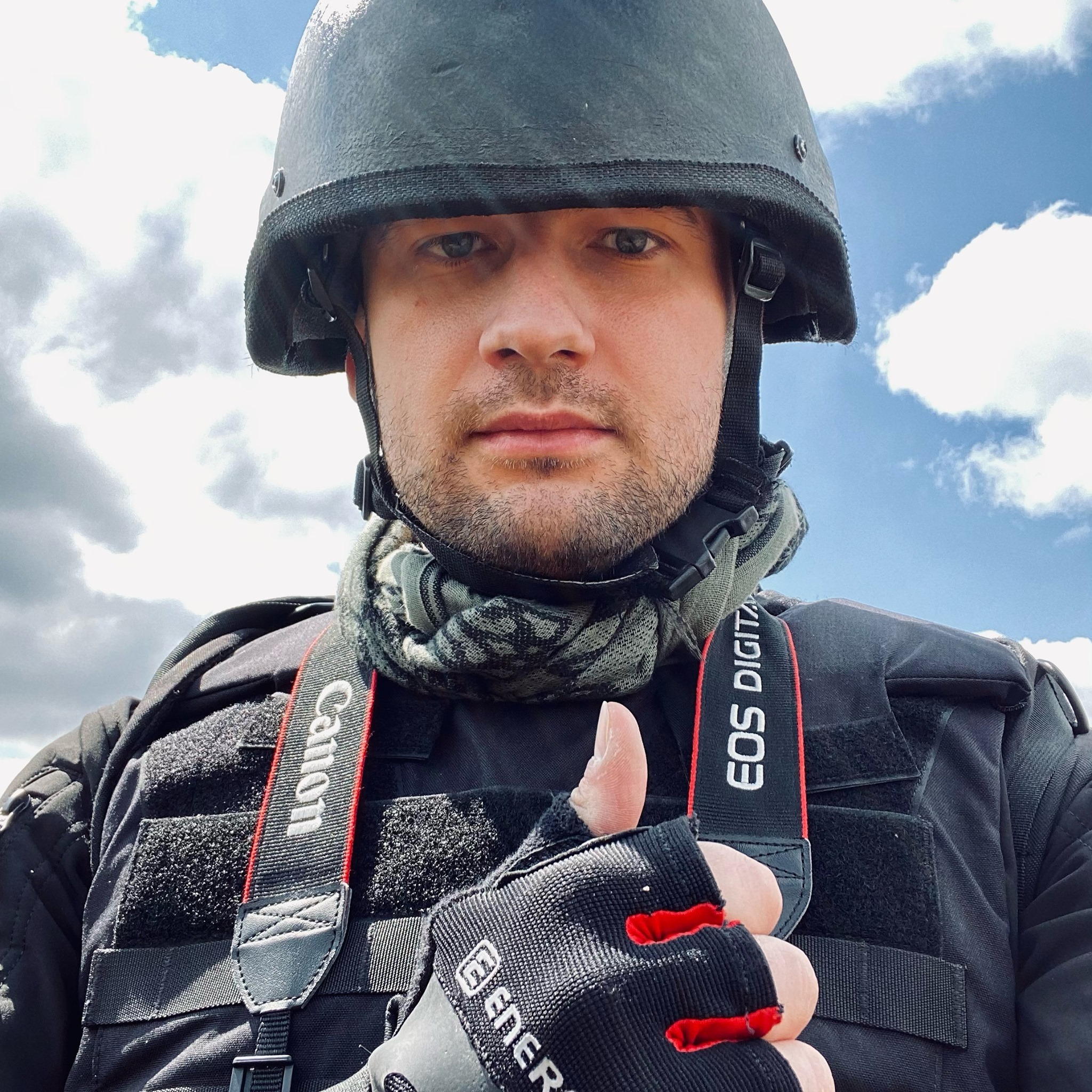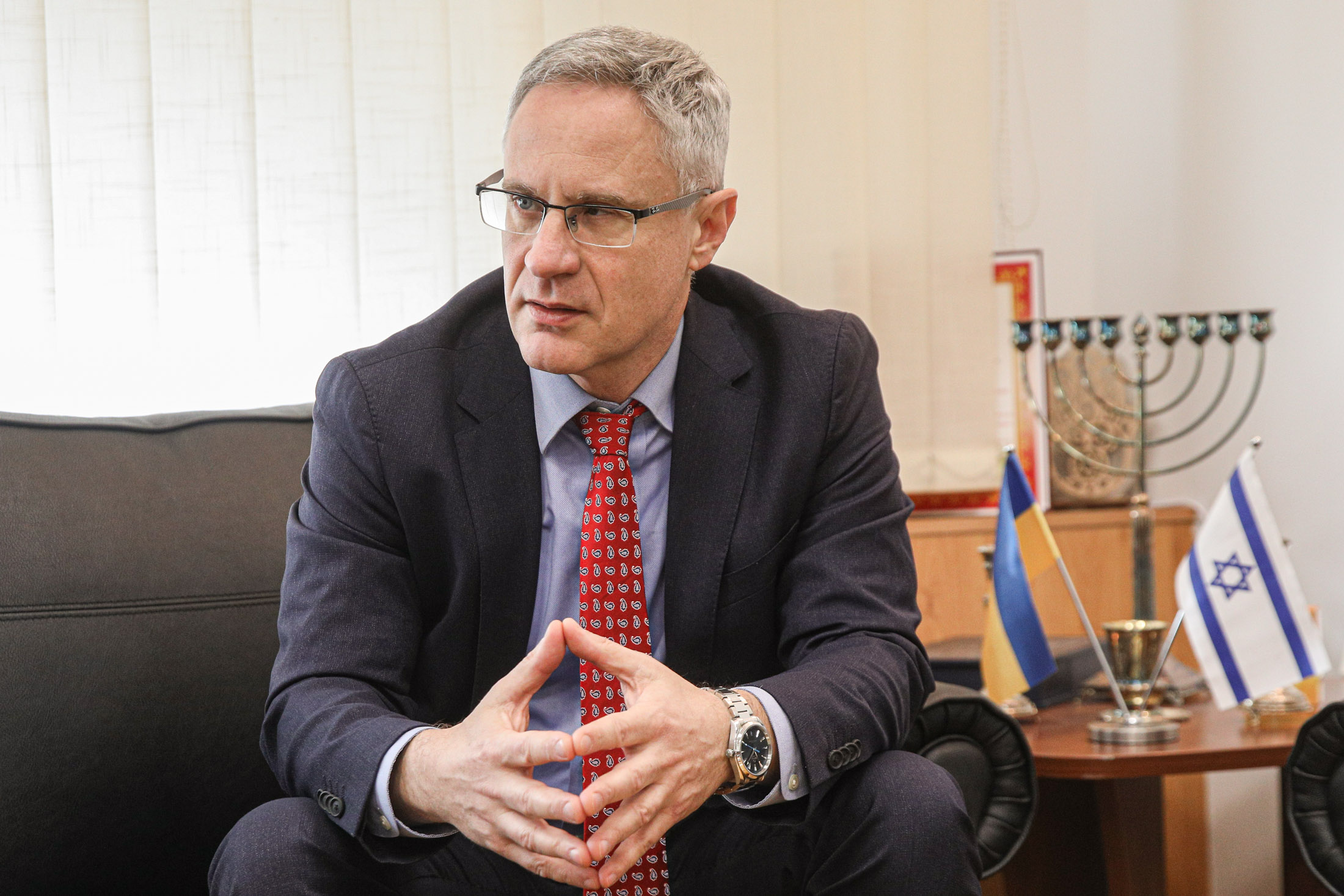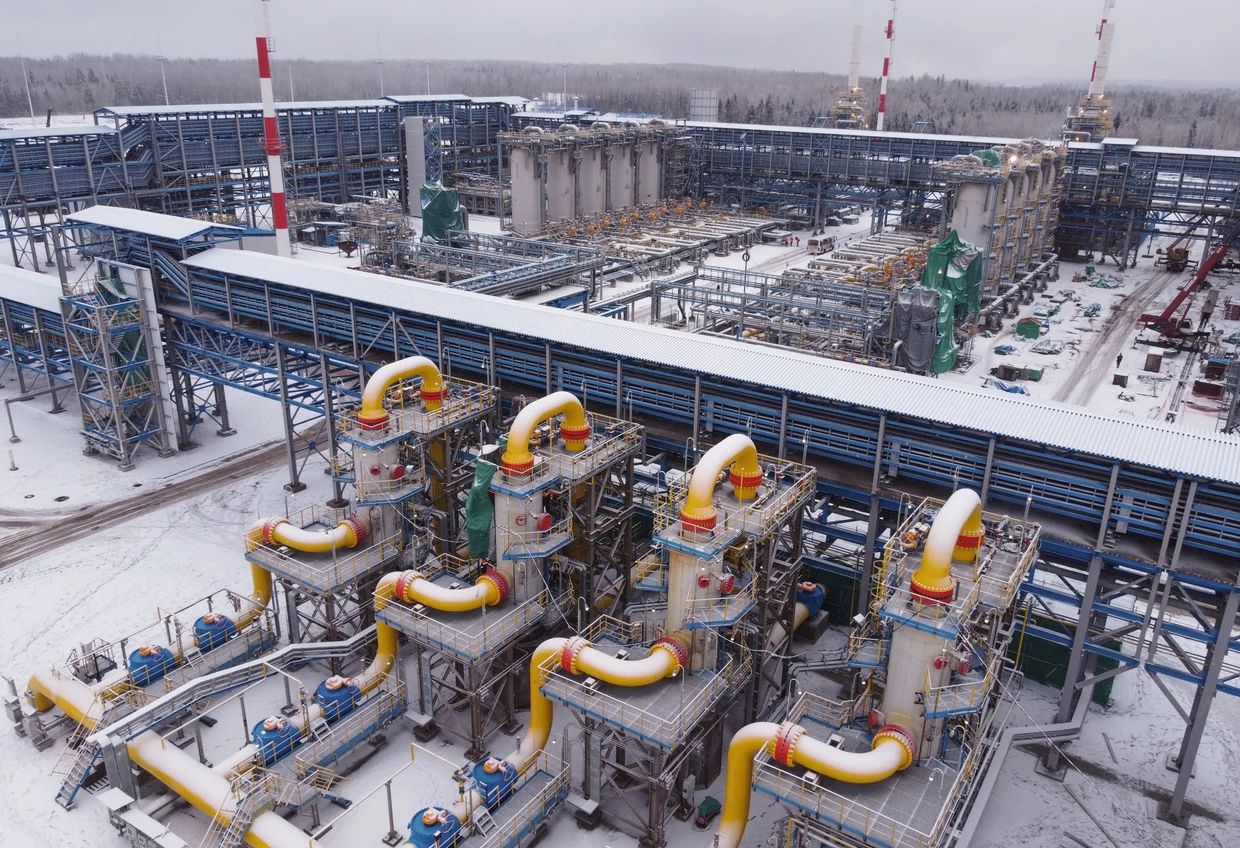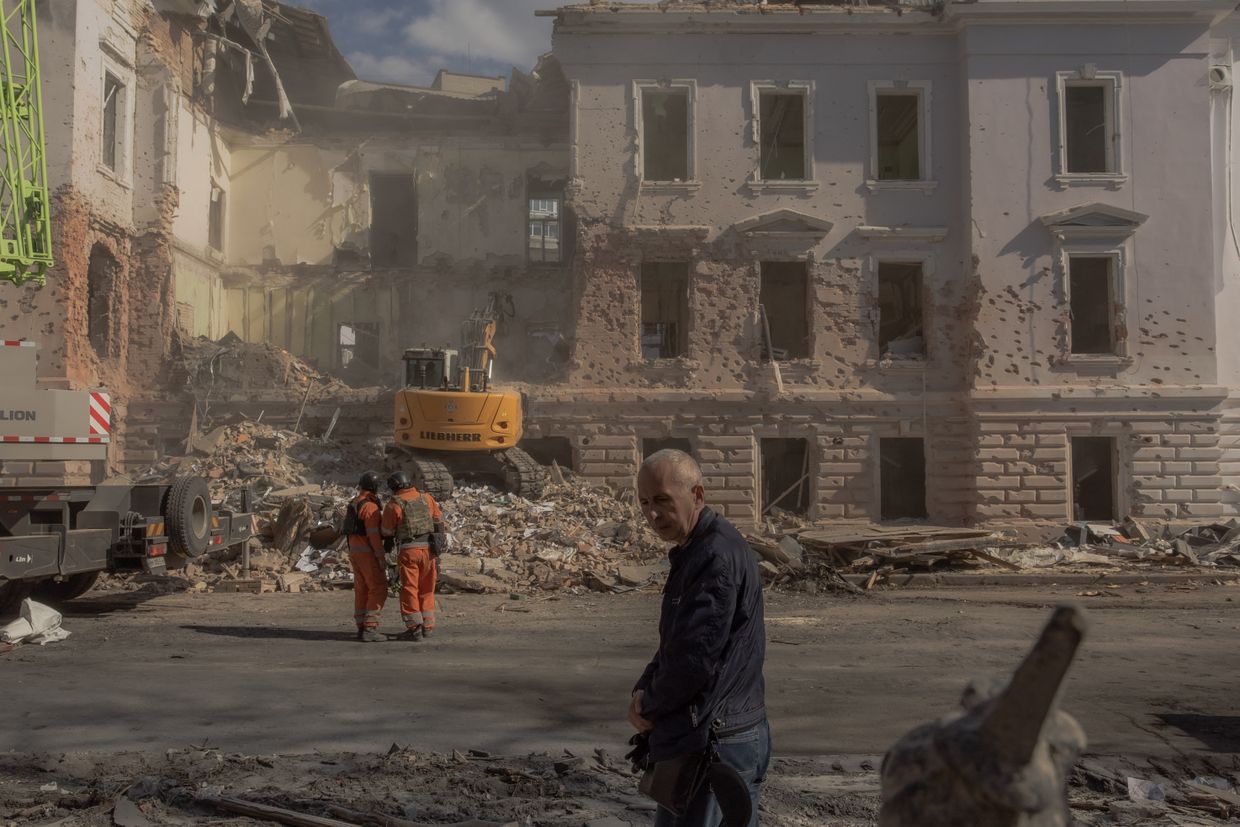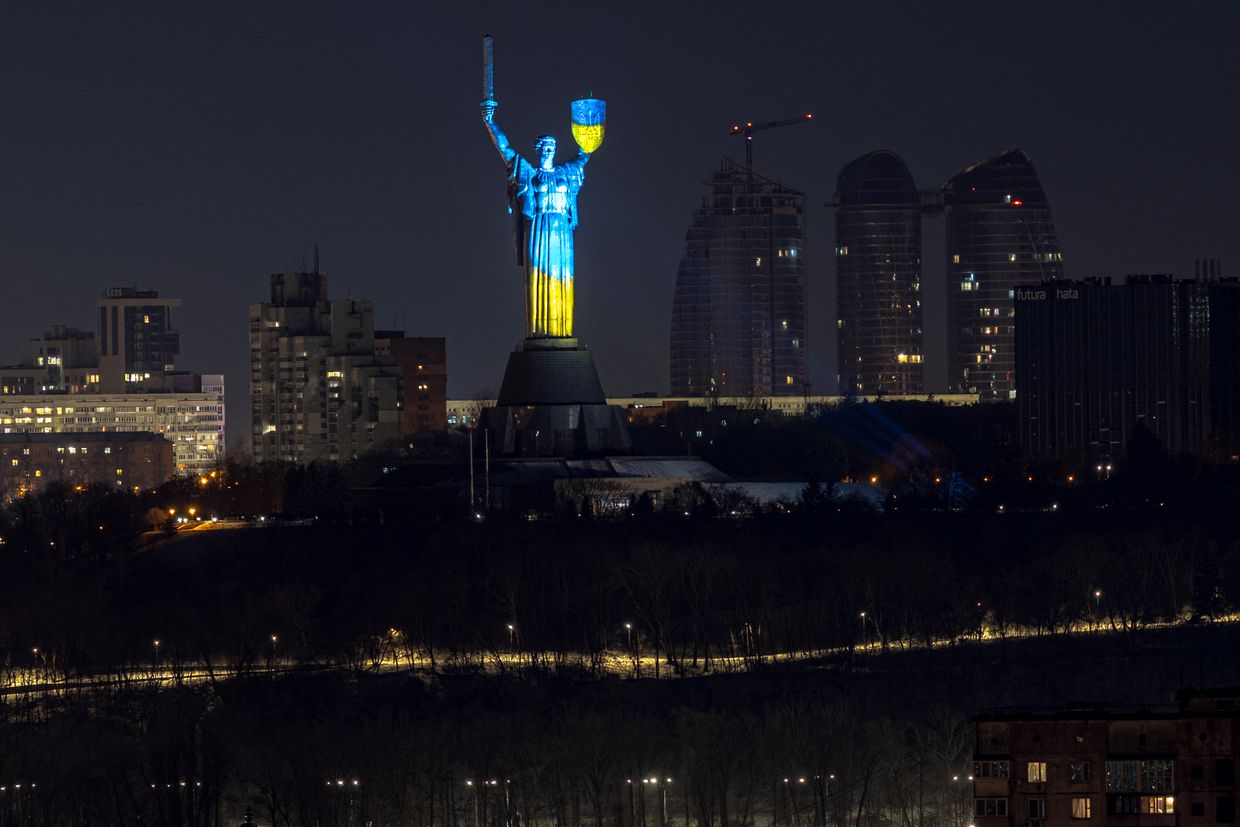Over the last few weeks, the question of Israeli support for Ukraine in its fight against Russia has returned to the spotlight.
After many months of ambiguity and silence, rumors circulating in the media suggest that Israel, amid Russia's ravaging brutality and its new alliance with Iran, secretly initiated the first steps to provide Kyiv with defense technologies.
Despite multiple reports about ongoing Ukraine-Israel military consultations and even the sale of important hardware via mediators in the West, the official Jerusalem does not publicly confirm any of it.
According to the Israeli Ambassador to Ukraine Michael Brodsky, Ukraine enjoys rather broad public support in Israeli society, despite what is believed to be a strong Russian influence among Russian-speaking Israelis.
Many people in Israel, Brodsky said, do a lot to provide humanitarian assistance to Kyiv. But when it comes to military support, the situation is much more complicated as Israel has its own "red lines" regarding its security in the Middle East.
Moreover, support for Kyiv in Israel has been jeopardized after Ukraine recently voted in favor of a number of United Nations resolutions condemning Israel in its dispute with Palestinian Autonomy.
"Speaking as not only a diplomat but also a person who has a lot of contacts for Israelis supporting Ukraine, I can tell you that some were very upset about the Ukrainian position," Brodsky told The Kyiv Independent in a recent interview in his Kyiv office.
"They said they halted their active assistance to Ukraine. To be honest, they did not understand the Ukrainian position regarding the Israeli question and the Middle East. They were upset, and they felt betrayed."
Amid many decades of the Israel-Palestine conflict, Ukraine recognizes the Palestinian Authonomy as an independent nation and has diplomatic ties with it.
Popular support
In general, Ukrainian public opinion tends to think of Israel as the country that abstains from rendering military assistance to Ukraine due to its own Realpolitik security approach and also the huge influence of Russia.
But according to Brodsky, "the Russian lobby" effect is very exaggerated when it comes to Israel.
"The Russian-speaking population has come to Israel from different countries," he said.
"By the way, in Israel, there are more people of Ukrainian descent than of Russian. So one shouldn't lump everyone under the same umbrella."
"Russian Israelis do not necessarily support Russia,” he added.
“And those originally from Ukraine do not support Ukraine in all 100% of cases. There is a small number of people truly supporting Russia. But, according to all polls and my personal observations, a vast majority of Israelis (those born in Israel and those coming from former Soviet nations) support and sympathize with Ukraine. Many have relatives and friends here, and such a connection never breaks, and people do their best to help Ukraine with all they can."
Supporting Ukraine has been popular in Israel, among the public and in the government, from the very beginning of Russia's full-scale invasion in February, the diplomat said.
According to a poll published in early March by Shlomo Filber and Tzuriel Sharon of Direct Polls company, 76% of Israelis supported Ukraine in the war.
"Not only did Israel vote in favor of the UN resolution condemning Russia and calling what had happened an aggression against Ukraine, but it also became the resolution's co-author. And in the absolute majority of cases, Israel voted in support of Ukraine on all resolutions and decisions regarding this issue in international organizations."
The key events of Russia's war against Ukraine get a lot of attention in the Israeli media, including Ukrainian battlefield successes and Russian missile terror campaigns against Ukrainian cities.
"Hundreds, if not thousands," of people in Israel fundraise or volunteer to help Ukrainian refugees, gather pro-Ukraine rallies in Israeli cities, or purchase helmets and armored vests for the Ukrainian military, the ambassador said.
Various private and state-run projects have ensured humanitarian assistance to Ukraine worth tens of millions of dollars. They include a field hospital and medical equipment worth over $1 million, food packs, drinking water, and other essentials.
In the near future, Israel will provide Ukraine with 20 large power generators, and Israeli hospitals are ensuring medical treatment to Ukrainian children struggling with cancer and to wounded Ukrainian soldiers in need of prosthetics, the ambassador said.
Brodsky knows of two Israeli nationals, who were also Ukrainian citizens, who volunteered to fight and were killed while defending Ukraine.
Many in the country also changed their attitude towards Russia after Feb. 24.
"What has happened over the last nine months — the Russian aggression against Ukraine — has undoubtedly affected the way people in the world see Russia and the region. Israel is no exception."
Pragmatic stance
When it comes to weapons, things are much less enthusiastic and much more obscure from the Israeli side.
Ukraine, including President Volodymyr Zelensky himself, has called multiple times on Israel to step up and provide the country with Israeli weaponry to counter Russia's relentless bombardment of vital civilian infrastructure.
In November, Israeli media said the country's leadership had given the green light to NATO allies, particularly the United Kingdom, to provide Ukraine with Israeli-made "strategic equipment," such as optoelectronics and fire control systems. The decision reportedly came following a U.S. diplomatic effort.
That would be a major step in switching from humanitarian aid to defense assistance for Ukraine.
Besides, in late November, Israeli journalists said a high-ranking Ukrainian delegation visited Israel to discuss a possible acquisition of Israel's “early warning missile technology.” It is not clear what this technology actually is – a better radar system or something else.
The early warning system is something that Israel wouldn’t mind providing to Ukraine, according to ambassador Brodsky.
But regarding weaponry, things are much more complicated.
"Such things shouldn't be discussed in the media,” Brodsky said.
“There shouldn't be a public discussion about this. Because as distinct from NATO nations, Israel can count only on itself when it comes to its security. Israel is not a formal member of any military bloc."
"And the threats that Israel faces are not comparable with the challenges of many other nations that openly support Ukraine. So when it comes to Israel, such questions should be discussed via special channels, preferably without the involvement of the general public and media," he went on.
"Any leaks of information regarding the Israeli assistance only jeopardize the process. So if one wants a result, it's better to talk less about this."
The diplomat could not tell if his country really helps Ukraine with defense technologies.
But he said the Ukrainian leadership knows that Israel has certain "red lines" it can't cross and that no Israeli government would risk endangering Israeli civilians and soldiers.
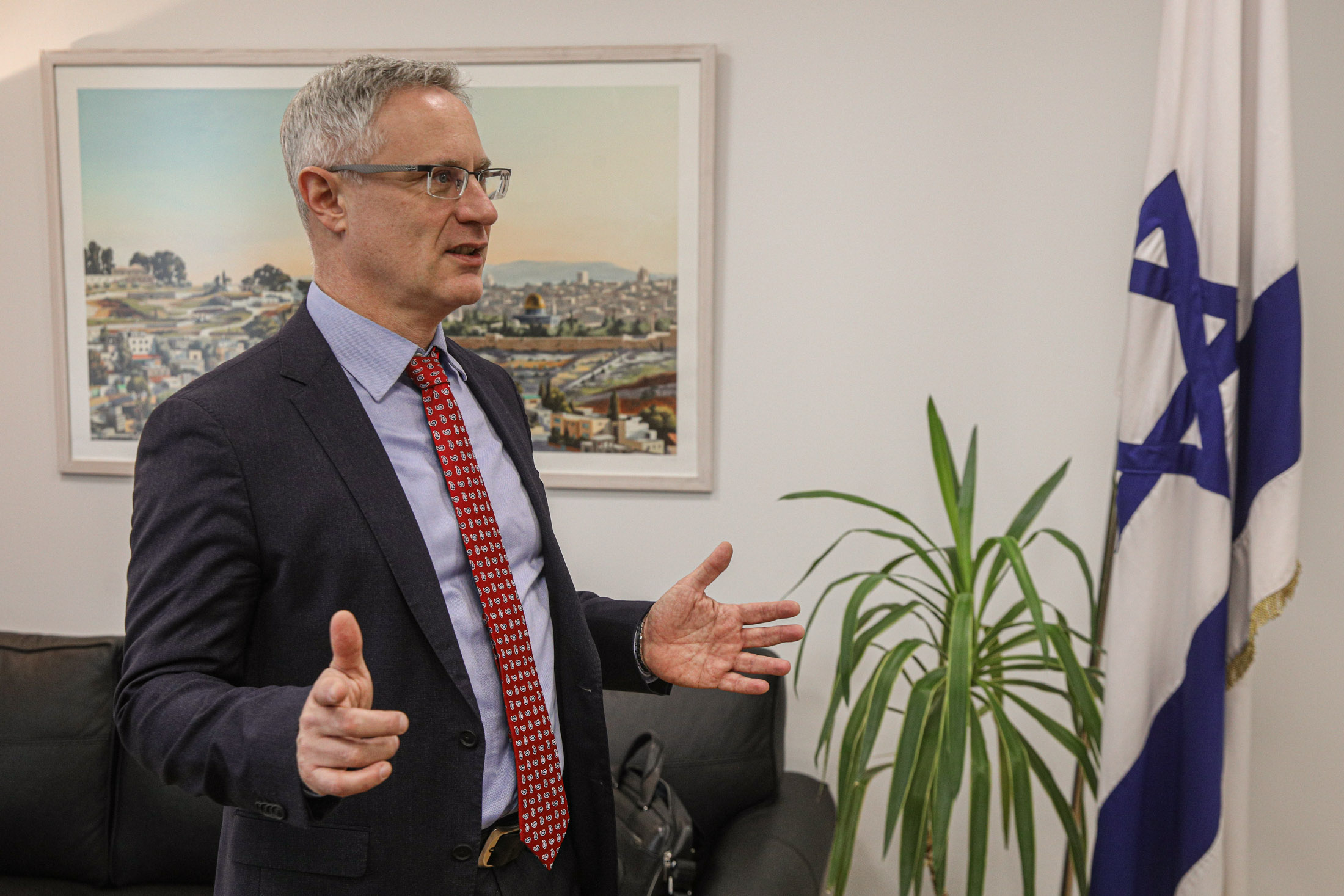
"Any incautious step in the Middle East may lead to an outburst of terror or, in the worst case, to a new regional war," Brodsky said.
The Israeli public opinion tends to support the government's cautious position regarding weapons for Ukraine, according to the ambassador. According to a poll by the Israel Democracy Institute published in October, only 21% of Israelis firmly support providing Ukraine with weapons.
The recent Ukrainian voting in condemnation of Israel at the UN had reinforced this position, Brodsky added.
The key reason for the Israeli hesitation is, of course, Russia.
It is very important to make sure that Moscow cooperates with Jerusalem and does not undermine the Israeli ability to combat the Iranian presence and the activities of anti-Israel militant groups in Syria, Brodsky said.
Predictably, the massive Russian use of the Iranian-made kamikaze drones Shahed-136 was a wake-up call for Israel. For decades since the Islamic Revolution of 1979, Iran has had the “elimination” of the state of Israel among key goals of its foreign policy.
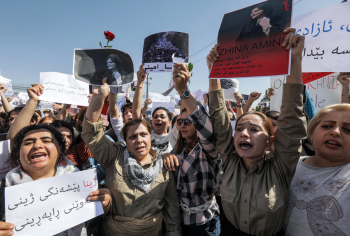
"We are closely observing the use of Iranian drones because we understand that those drones can be used against us," he said. "Moreover, they have already been used against us, although not in such large numbers. Unless my memory fails me, there have been two attempted attacks upon Israeli facilities.
"In both cases, all the drones were downed. But I don't think Israel has much experience in combating them. As Ukraine learns to combat the Iranian drones, so do we. I'm sure we have the exchange of experience and contacts with the Ukrainian military."
At the same time, he said, Israel is not sure exactly what Iran is getting for assisting Moscow. If, as many speculations in the media say, it is confirmed that Tehran agreed to sell Russia its drones in exchange for nuclear assistance, there will be an Israeli reaction.
"A nuclear-armed Iran is a red line we can't accept," the ambassador said.
"Israel has been quite open about this, and Israel will do everything to prevent that. It's too early to discuss what that could be."
Holocaust vocabulary
Brodsky said that in general, Israel is on a good footing with Kyiv. That's despite the rather complicated past and frantic Russian propaganda.
"There are matters of argument between Ukraine and Israel when it comes to our common history," he said.
"Of course, we're not happy when in Ukraine, streets are named after (Stepan) Bandera and (Roman) Shukhevych. They are not our heroes, to say the least. But I believe the discussion is to be continued after the war by professional historians,” he went on.
Bandera and Shukhevych were the leaders of the Ukrainian nationalist movement of the 1920s-1940s. They have gained official recognition in today’s Ukraine but are also alleged by a number of historians to have participated in the mass murders of Jews and Poles during World War II.
Brodsky also mentioned that in the past, Israel wasn’t happy with some things “said on behalf of Ukraine's right-wing groups,” including the Azov Regiment, which has gained new prominence in 2022 for its role in fighting off the Russian invasion, particularly during the siege of Mariupol.
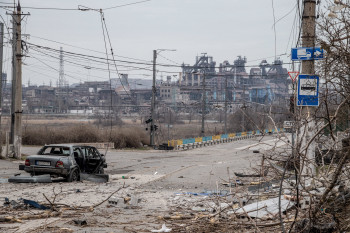
In recent years, Israel had its questions also regarding other right-wing groups in Ukraine, which are among key bullet points for Russian propaganda.
But Israel absolutely does not believe there are widespread antisemitic sentiments in Ukraine, the ambassador said.
“This doesn't mean Ukraine is more anti-semitic than any other country. Antisemitism is present in any country, like France or the United States,” Brodsky said.
“Unfortunately, that's the reality we live in. But there's no antisemitism at the national level in Ukraine. And all accusations of Ukraine being some sort of a Nazi regime is utter nonsense. We've always said that, and we keep saying this."
"We disconcertingly oppose the use of the Holocaust time vocabulary in the present situation (by Russia). We consider this irrelevant and disrespectful towards those who were killed in the Holocaust."
__________________________________________________________________________
Note from the author:
Hello! My name is Illia Ponomarenko, the guy who wrote this piece for you.
I hope you found it useful and interesting. I work day and night to bring you quality stories from Ukraine, where Russia is waging the biggest war in Europe since WWII. My little homeland, Donbas, is now the site of the worst fighting. We are helping to keep the world informed about Russian aggression. But I also need help from every one of you — to support Ukrainian wartime journalism by donating to the Kyiv Independent and becoming our patron. Together, we can help bring peace to Ukraine.
